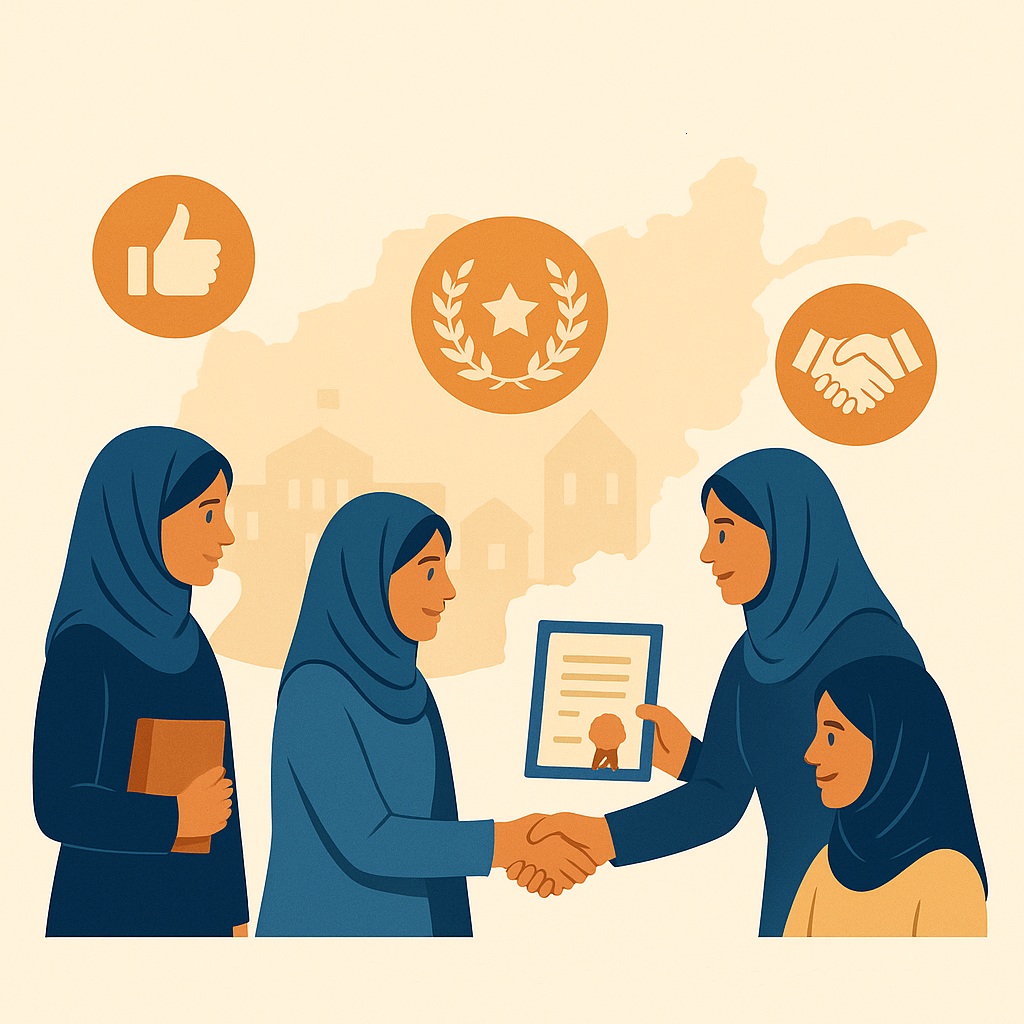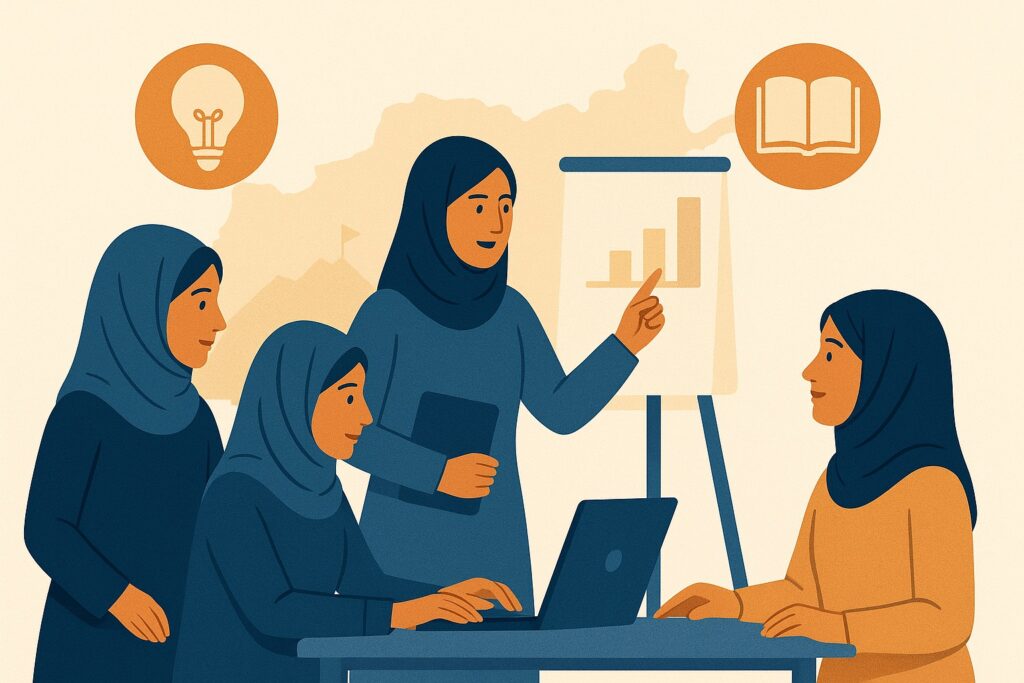AEWA member organizations collectively developed a set of Learning Quality Standards which we commit to upholding in each of our education programs. The Standards promote accountability towards learners, prioritize quality in educational programming, and ensure programs operate ethically and have appropriate processes in place.
The Standards can be used by educational providers as a basis for verifying their own
performance and guiding improvements. They provide agreed principles for the provision of quality educational services and can be used alongside the associated quality assurance mechanisms by educational providers to demonstrate and improve the quality of their services.
Designed for use by organizations, institutions, departments, and initiatives providing educational services in Afghanistan, these standards ensure that all providers contribute to a future where Afghan women and girls have access to quality learning programs. Educational providers that meet these standards are contributing to a world in which Afghan women and girls can access and receive quality education, empowering them to thrive and contribute to a more equitable and prosperous society.


As part of members’ commitment to accountability and quality learning, AEWA developed a Peer Recognition Framework. By adopting the Peer Recognition Framework, AEWA members commit to maintaining high educational standards and fostering a collaborative, quality-focused educational ecosystem. This framework not only enhances the credibility of educational programs but also empowers Afghan women and girls with recognized credentials, contributing to a more equitable and prosperous society.
Alliance member organizations are committed to organizational growth and development, to better serve our program participants: girls and women in search of a world class education. Members have access to capacity building opportunities, such as webinars and specialized knowledge resources relevant to our operational contexts.


AEWA is a forum for connection and coordination. Member organizations benefit from live communication forums, regular meetings online and in person, and working together in thematic working groups. This leads to partnerships and collaborations that make the most of each organization’s resources, expertise and value added, finding efficiencies in program delivery by joining forces when it makes sense. AEWA member organizations benefit from access to an engaged audience of peers, who share information and opportunities with each other.